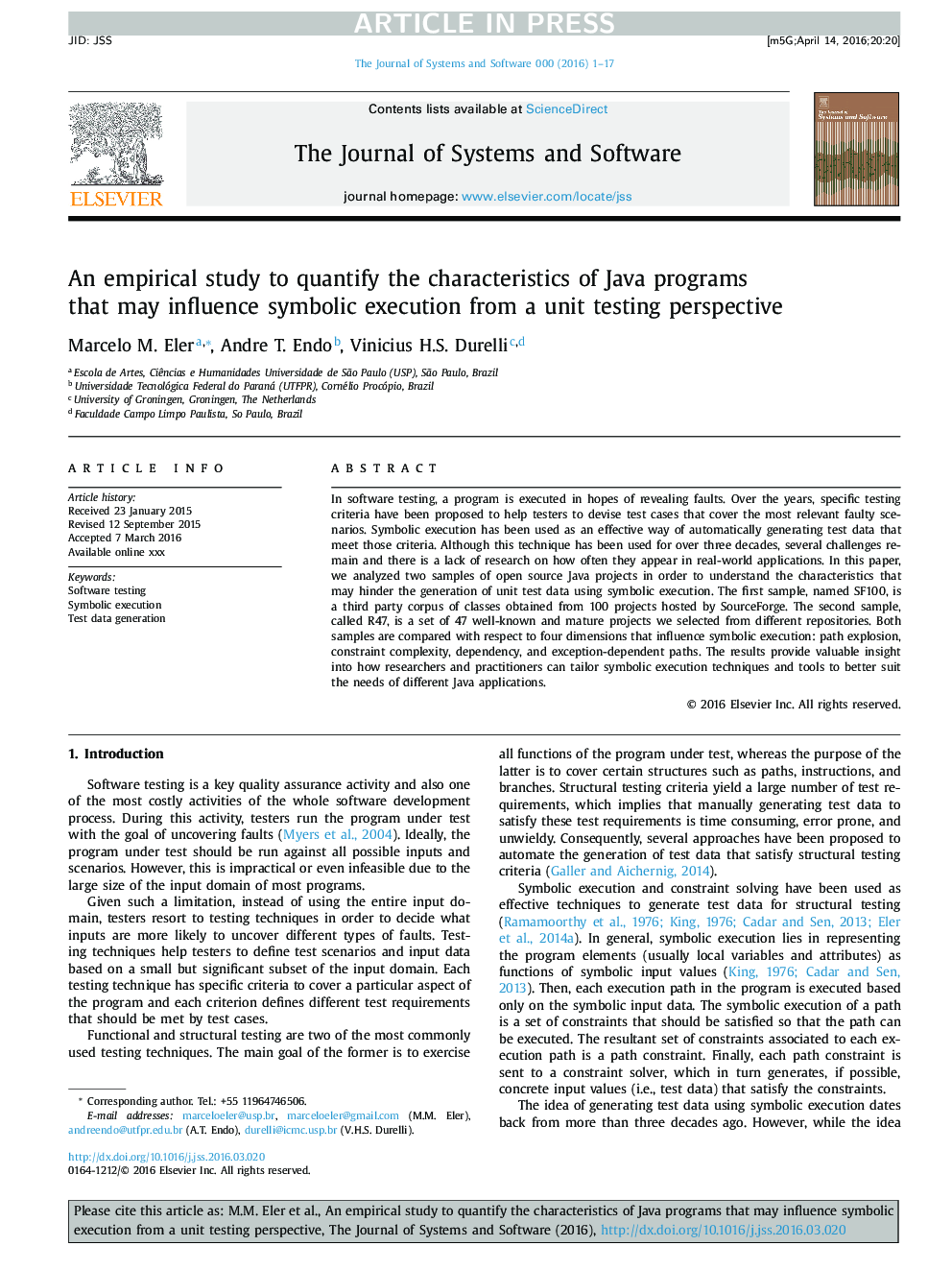| کد مقاله | کد نشریه | سال انتشار | مقاله انگلیسی | نسخه تمام متن |
|---|---|---|---|---|
| 6885455 | 696520 | 2016 | 17 صفحه PDF | دانلود رایگان |
عنوان انگلیسی مقاله ISI
An empirical study to quantify the characteristics of Java programs that may influence symbolic execution from a unit testing perspective
ترجمه فارسی عنوان
یک مطالعه تجربی برای ارزیابی ویژگی های برنامه های جاوا که ممکن است بر اجرای نمادین از دیدگاه تست واحد تاثیر بگذارد
دانلود مقاله + سفارش ترجمه
دانلود مقاله ISI انگلیسی
رایگان برای ایرانیان
کلمات کلیدی
تست نرم افزار، اعدام نمادین، تست تولید داده ها،
موضوعات مرتبط
مهندسی و علوم پایه
مهندسی کامپیوتر
شبکه های کامپیوتری و ارتباطات
چکیده انگلیسی
In software testing, a program is executed in hopes of revealing faults. Over the years, specific testing criteria have been proposed to help testers to devise test cases that cover the most relevant faulty scenarios. Symbolic execution has been used as an effective way of automatically generating test data that meet those criteria. Although this technique has been used for over three decades, several challenges remain and there is a lack of research on how often they appear in real-world applications. In this paper, we analyzed two samples of open source Java projects in order to understand the characteristics that may hinder the generation of unit test data using symbolic execution. The first sample, named SF100, is a third party corpus of classes obtained from 100 projects hosted by SourceForge. The second sample, called R47, is a set of 47 well-known and mature projects we selected from different repositories. Both samples are compared with respect to four dimensions that influence symbolic execution: path explosion, constraint complexity, dependency, and exception-dependent paths. The results provide valuable insight into how researchers and practitioners can tailor symbolic execution techniques and tools to better suit the needs of different Java applications.
ناشر
Database: Elsevier - ScienceDirect (ساینس دایرکت)
Journal: Journal of Systems and Software - Volume 121, November 2016, Pages 281-297
Journal: Journal of Systems and Software - Volume 121, November 2016, Pages 281-297
نویسندگان
Marcelo M. Eler, Andre T. Endo, Vinicius H.S. Durelli,
